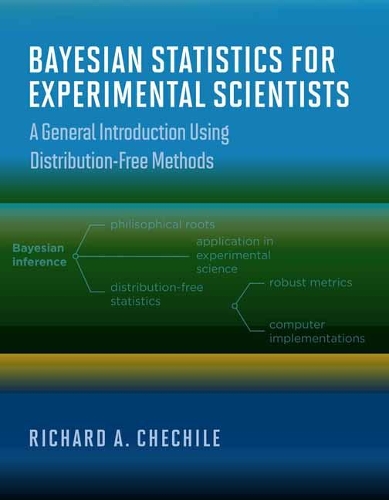
Bayesian Statistics for Experimental Scientists
(Hardback)
Publishing Details
Bayesian Statistics for Experimental Scientists
By (Author) Richard A Chechile
MIT Press Ltd
MIT Press
1st December 2020
United States
Classifications
Tertiary Education
Non Fiction
519.542
Physical Properties
Hardback
512
Width 178mm, Height 229mm
Description
An introduction to the Bayesian approach to statistical inference that demonstrates its superiority to orthodox frequentist statistical analysis. This book offers an introduction to the Bayesian approach to statistical inference, with a focus on nonparametric and distribution-free methods. It covers not only well-developed methods for doing Bayesian statistics but also novel tools that enable Bayesian statistical analyses for cases that previously did not have a full Bayesian solution. The book's premise is that there are fundamental problems with orthodox frequentist statistical analyses that distort the scientific process. Side-by-side comparisons of Bayesian and frequentist methods illustrate the mismatch between the needs of experimental scientists in making inferences from data and the properties of the standard tools of classical statistics. The book first covers elementary probability theory, the binomial model, the multinomial model, and methods for comparing different experimental conditions or groups. It then turns its focus to distribution-free statistics that are based on having ranked data, examining data from experimental studies and rank-based correlative methods. Each chapter includes exercises that help readers achieve a more complete understanding of the material. The book devotes considerable attention not only to the linkage of statistics to practices in experimental science but also to the theoretical foundations of statistics. Frequentist statistical practices often violate their own theoretical premises. The beauty of Bayesian statistics, readers will learn, is that it is an internally coherent system of scientific inference that can be proved from probability theory.
Author Bio
Richard A. Chechile is Professor of Psychology and Cognitive and Brain Scientist at Tufts University. He is the author of Analyzing Memory- The Formation, Retention, and Measurement of Memory (MIT Press).
